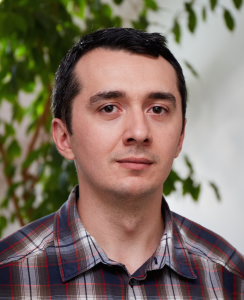The workshop will take place in room Tannehill.
9:00 – 10:30 Session 1: Opening and Keynote
10:30 – 11:00 Coffee Break
11:00 – 12:30 Session 2: Paper Presentations
Presentation time for each paper is 15 minutes, plus 5 minutes for discussion. At the end of the session, we will wrap up with a short discussion.
| 11:00 – 11:20 | Transformations Debugging Transformations Maris Jukss, Clark Verbrugge and Hans Vangheluwe Paper Slides |
| 11:20 – 11:40 | Towards Debugging the Matching of Henshin Model Transformations Rules Matthias Tichy, Luis Beaucamp and Stefan Kögel Paper Slides |
| 11:40 – 12:00 | Domain-Level Debugging for Compiled DSLs with the GEMOC Studio Erwan Bousse, Tanja Mayerhofer and Manuel Wimmer Paper Slides |
| 12:00 – 12:20 | Debugging Non-Determinism: a Petrinets Modelling, Analysis, and Debugging Tool Simon Van Mierlo and Hans Vangheluwe Paper Slides |
| 12:20 – 12:30 | Discussion |
12:30 – 14:00 Lunch Break
14:00 – 17:30 Session 3: Discussions
This session will be used to define and scope the domain of debugging in model-driven engineering and identify current and future challenges. Further, we’ll discuss how to grow the community and future plans such as (a) special journal issue(s), workshops, etc.
| 14:00 – 14:45 | Discussion, deciding on set of topics and forming of groups. |
| 14:45 – 15:30 | Discussions in groups. |
| 15:30 – 16:00 | Coffee break. |
| 16:00 – 16:45 | Discussions in groups. |
| 16:45 – 17:30 | Discussion of results and wrap-up. |
Keynote: Moldable Debugging by Andrei Chiș
Abstract
 Programming languages evolved towards letting developers design software applications in terms of domain abstractions. What about development tools? While developers express software using programming languages, they craft software exclusively by interacting with development tools. Tools offer the lenses through which developers perceive and reason about their software systems. Unfortunately, all too often developers rely on rigid development tools, focused on programming language constructs, unaware of application domains. On the one hand, we educate developers to shape custom and rich domain models. On the other hand, we still force them to use a one-size-fits-all-paradigm when it comes to development tools.
Programming languages evolved towards letting developers design software applications in terms of domain abstractions. What about development tools? While developers express software using programming languages, they craft software exclusively by interacting with development tools. Tools offer the lenses through which developers perceive and reason about their software systems. Unfortunately, all too often developers rely on rigid development tools, focused on programming language constructs, unaware of application domains. On the one hand, we educate developers to shape custom and rich domain models. On the other hand, we still force them to use a one-size-fits-all-paradigm when it comes to development tools.
In this talk we claim that we should empower developers to shape their development tools together with their domain models. We then explore how this can transform debugging and debuggers, and delve into what is needed to make this view a reality. The talk is accompanied with live demos based on the the Glamorous Toolkit, the new IDE of the Pharo programming language.
Bio
Andrei Chiș acts as a tool crafter at feenk building moldable tools and techniques for improving the way we develop, comprehend and evolve software. He is a co-author of the Glamorous Toolkit and a core contributor to both the Moose analysis platform and the Pharo programming language. Andrei holds a PhD from the University of Bern. In his PhD work he maintained that integrated development environments have to be moldable, that is, they have to be aware of the application under development and enable rapid customizations to new applications and tasks. To make this vision possible he proposed the Moldable Tools approach, applied it to obtain tools like the Moldable Debugger and Moldable Inspector, and showed how a moldable development environment can significantly improve the development productivity.
